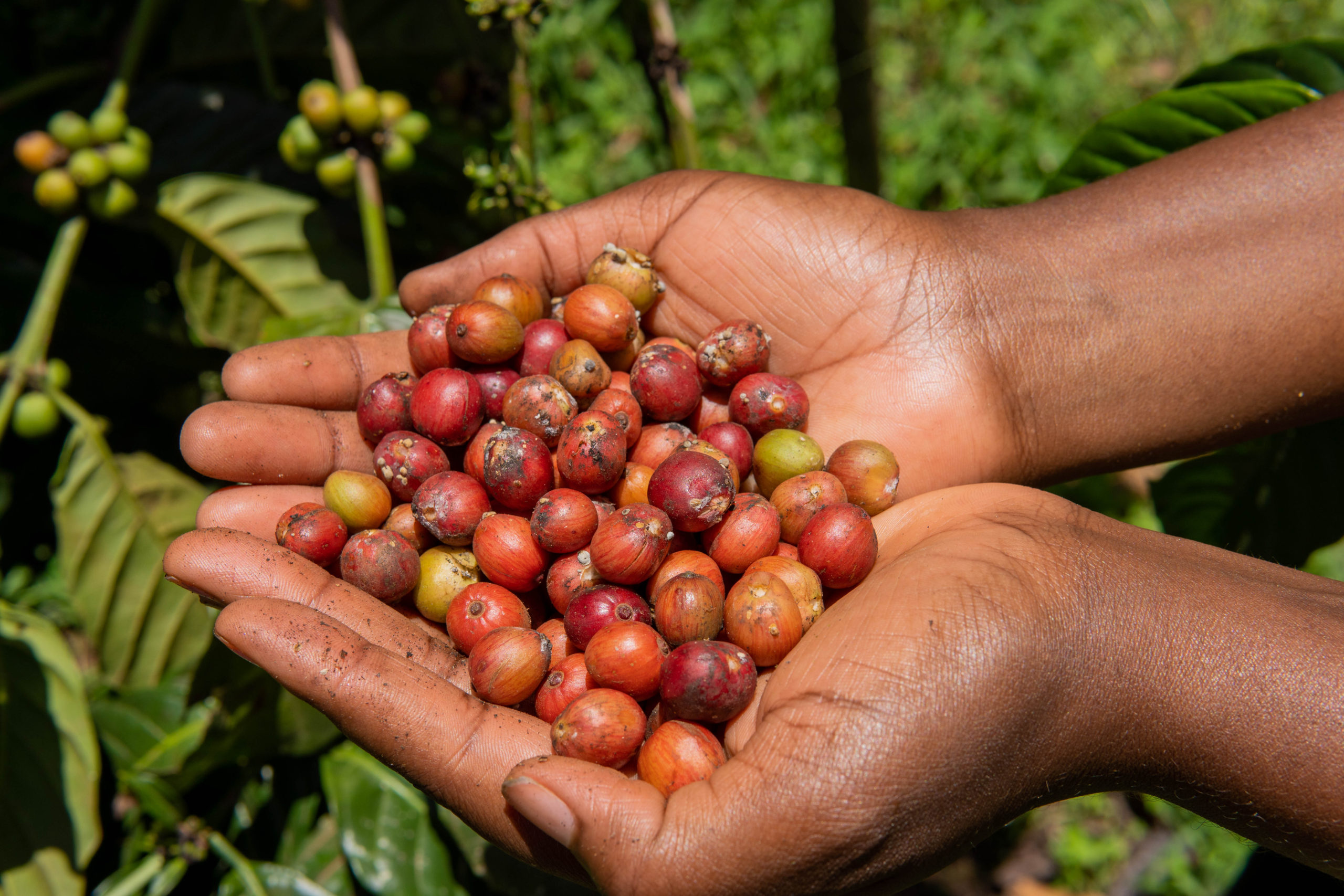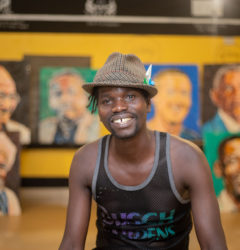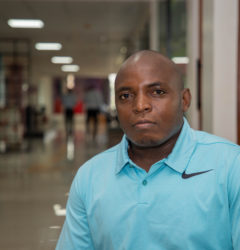05 May

To a lot of people, coffee is to their systems what fuel is to a car. Based in Jinja, Aloysius Kawooya is an agro entrepreneur who has made it his mission to make that coffee fix worthwhile for Ugandans. His career began in the performing arts but a brief landing at a coffee processing plant made 31-year-old Kawooya the coffee connoisseur he has become. Working as a quality control officer at the coffee plant gave Kawooya deep knowledge about the golden cash crop. This knowledge has since become handy for his business.
Kawooya’s entrepreneurship journey starts in Buyaaya village, Buwama district where an abundance of coffee trees inspired him to join the coffee value chain system. Many of the families in this agricultural community grow coffee. Roles on the plantations are very elaborate. Women till the land, plant and care for the coffee until the harvest stage. The men make financial decisions regarding the cost of the coffee and where it will be sold.
As a result of these gender roles in agriculture, Kawooya discovered women are exploited and do not get to enjoy their labour’s worth. He did not stop at the discovery. He found a solution for the women. The women formed groups and he bought all their coffee, adding Shs100 to the market price. This was the beginning of the Women Coffee Farmer Savings and Credit Cooperative Organisation that supplies the raw beans, sends them to Gayaza for roasting and grinding then to Jinja for packaging. From the women farmers, some of the coffee is roasted, ground and packed before hitting the market. The rest of the coffee is exported.
Two years into the business and at each coffee harvest, Kawooya collects approximately two tonnes of coffee for processing. The year 2019 has been the best on this journey. In the aforementioned year, Butumwa Agrocessing won the CURAD challenge and the Tony Elumelu foundation awards that propelled his business further through providing access to funding and tools to process his coffee.
All was going well until the pandemic descended upon the country. “In the middle of the pandemic, people had to choose between coffee and posho. They could not choose coffee,” Kawooya summarises the crisis.
The business suffered in terms of sales, owing to its primary customers prioritising other needs. This was a brief period characterised by setbacks. Kawooya returned to the drawing board. As he reflected on how to redeem his business it coincided with The Innovation Village’s launch in Jinja. During this time The Innovation Village held business training sessions aimed at helping the small and medium enterprises to recover.
“One of the things that I got from those sessions was to start small,” Kawooya says.
Before the pandemic, he was selling coffee packs of 100 grams at Shs5000, 250 grams at Shs10,000 and 500 grams for Shs20,000. During the pandemic, he turned his focus to the lower class and repackaged his product to suit their income.
Having deployed vendors to sell his coffee door to door, Kawooya began selling 7 grams at Shs200, 30grams at Shs1000 and 15 grams at Shs500.
With this business, the sales multiplied and business stabilised but then as misfortune would have it, another set back hit the business. Misadvised by someone, Kawooya changed his business model and took out loans to support this new direction. He made more losses that required him to resort to the previous business models albeit with many difficulties.
During this challenging time, The Innovation Village Jinja has supported him. Kawooya says that the knowledge dispensed at these business training and entrepreneur meetings have once again taught him a few things.
“I have learned that you must have a team to build a business with,” Kawooya mentions the second lesson from the business foundation course held by The Innovation Village. Previously, like many entrepreneurs, Kawooya is now putting aside his long-standing belief that the bearer of a dream must nurture it and see the idea to fruition single handedly. He has also learnt this is a recipe for burn out.
Kawooya says having a team gives one a group of people to be accountable to. He now has access to board members who advise him at no cost.
Another invaluable lesson was through the Founders for Founders Lab whose conversations rotated around funding.
“We were told by the speaker that not all funding is your funding because businesses are at various stages of growth and sometimes at certain stages, you may not be able to handle the funding,” Kawooya says. He now understands the stage his business is at thanks to this extensive business training program.
Speaking of grabbing opportunities at one of the entrepreneurs’ events encouraged Kawooya to pitch his Butumwa Coffee at The Innovation Village in Jinja. There was a need for the hot beverage so he now supplies those that sit in this co-working place. Butumwa Agro-processors has also found a place to call its own at The Innovation Village.
“The coworking space has been useful to me because it’s reasonably priced but also working there makes me feel motivated to get busy too. You see people working and you get yourself busy and working.” Kawooya adds.
Regardless of the ups and downs, what remains are a lot of wins to celebrate. Kawooya has been able to rake in revenues between Shs400,000 to Shs700,000. He has been able to support livelihoods and families through employment in this value chain. First, are the 15 women in the SACCO earning between Shs180,000 and Shs300,000 per season.
In addition to those, he has about 12 people employed on full and part-time basis during the harvest season. Salespeople earn Shs90,000 per month and Shs90 as commission. On a good day, a salesperson earns Shs15,000.
Kawooya is optimistic about the future. But first, he feels there are things that need to be worked on as an entrepreneur. He wants to provide a source of income in between the harvest seasons, for the women who supply him with coffee. He hopes that The Innovation Village can support him with hands-on skills training for the women that can translate into finance.
Coffee consumption is picking up in the country and right now, Kawooya wants to ride on this wave to take Butumwa Agro Processing’s coffee into every shop and little kiosk in the country. It is a long road he treads but he sees a bright end in sight.










Recent Comments